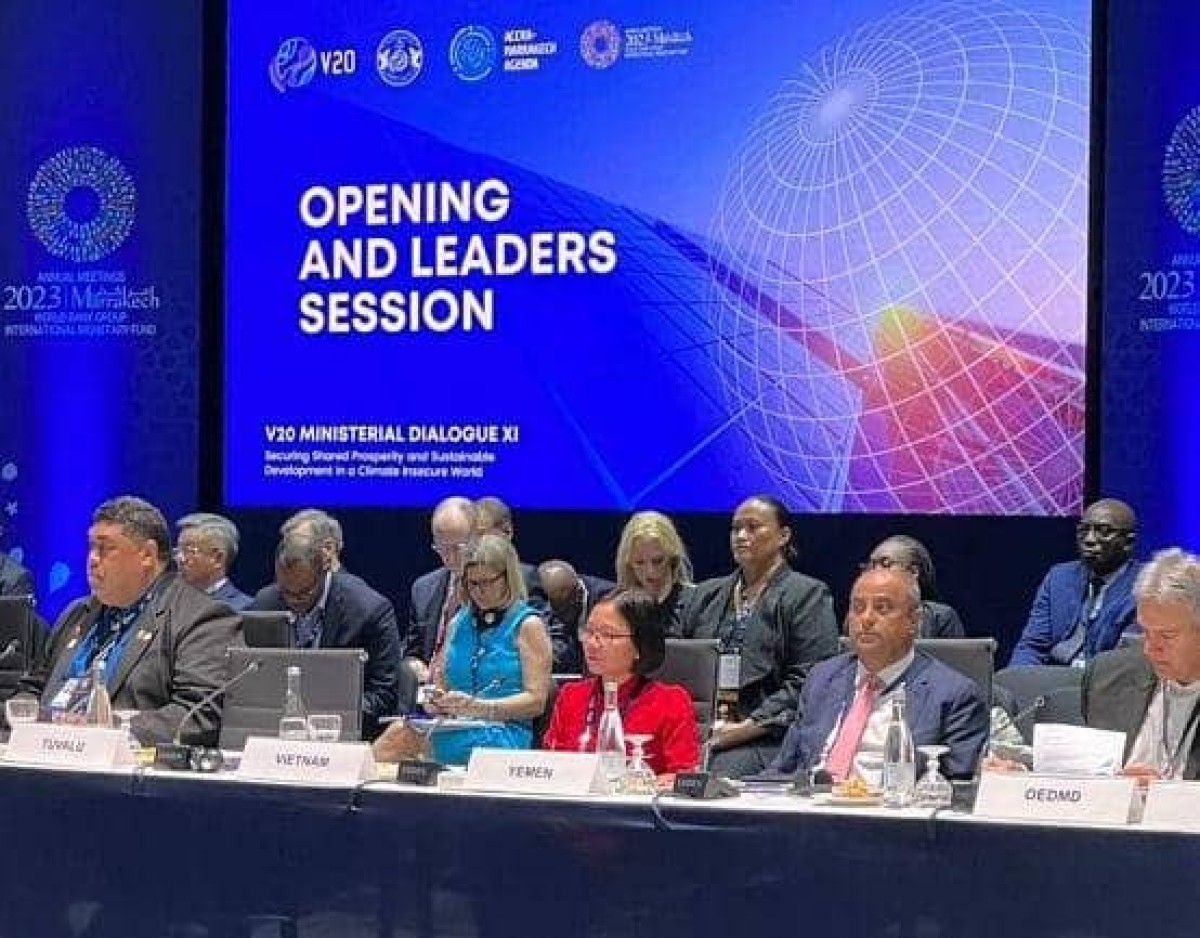During the meeting of developing countries with the G20 group in Marrakesh..
Minister of Finance: Yemen will be in real trouble if the export of crude oil continues to stop


Finance Minister Salem Ben Brik participated today, in the Moroccan city of Marrakesh, in the meeting of developing countries with the G20 group (the eleventh dialogue), on the sidelines of the annual meetings of the Bank Group and the International Monetary Fund.
Minister Ben Brik touched on the overall developments in the economic and financial conditions in the country and the challenges facing the government, the urgent need to accelerate the provision of pledges, and the most prominent aspects of economic support necessary to support government efforts in alleviating human suffering and improving service and public conditions... reviewing the level of government implementation. The Ministry of Finance program of economic, financial and monetary reforms with the support of the brothers in the Kingdom of Saudi Arabia and the United Arab Emirates and the supervision of the Arab Monetary Fund, and the importance of the grant provided by the brothers in Saudi Arabia in the amount of one billion and 200 million dollars to support the state’s general budget, to achieve stability and economic improvement.
He explained that the government reform program aims to correct imbalances in the economic and financial aspects, combat corruption, sustain public finances, develop self-resources, reform the tax and customs system, control spending, enhance financial inclusion, achieve transparency and accountability, and develop public debt management... pointing out that the government side has achieved the results with the help of experts. From the International Monetary Fund to a near consensus on the size of public debt.
He reiterated the seriousness of the continued cessation of the export of crude oil, which constitutes 70 percent of the state budget, due to the Houthi militia’s escalation of the economic war and its targeting of vital and strategic facilities for the export of crude oil, which leads to further exacerbation of the economic challenges and the human and livelihood suffering. Especially in light of the continuing institutional and financial division in the country.
Minister Ben Brik spoke about the crises in the country, which include food insecurity, the registration of about 24 million people in need of humanitarian aid, more than 5 million male and female students facing difficulty in obtaining adequate education, and more than two million children under the age of five. They suffer from cases of acute malnutrition, high maternal mortality during pregnancy and breastfeeding, high cases of mass internal displacement of more than 5 million people, as well as high rates of foreign migration to Yemen, which is estimated at tens of thousands annually, which constitutes burdens on the provision of public services, in addition to the effects Climate change, the spread of harmful pests in agricultural crops, and the rise in food and energy prices.